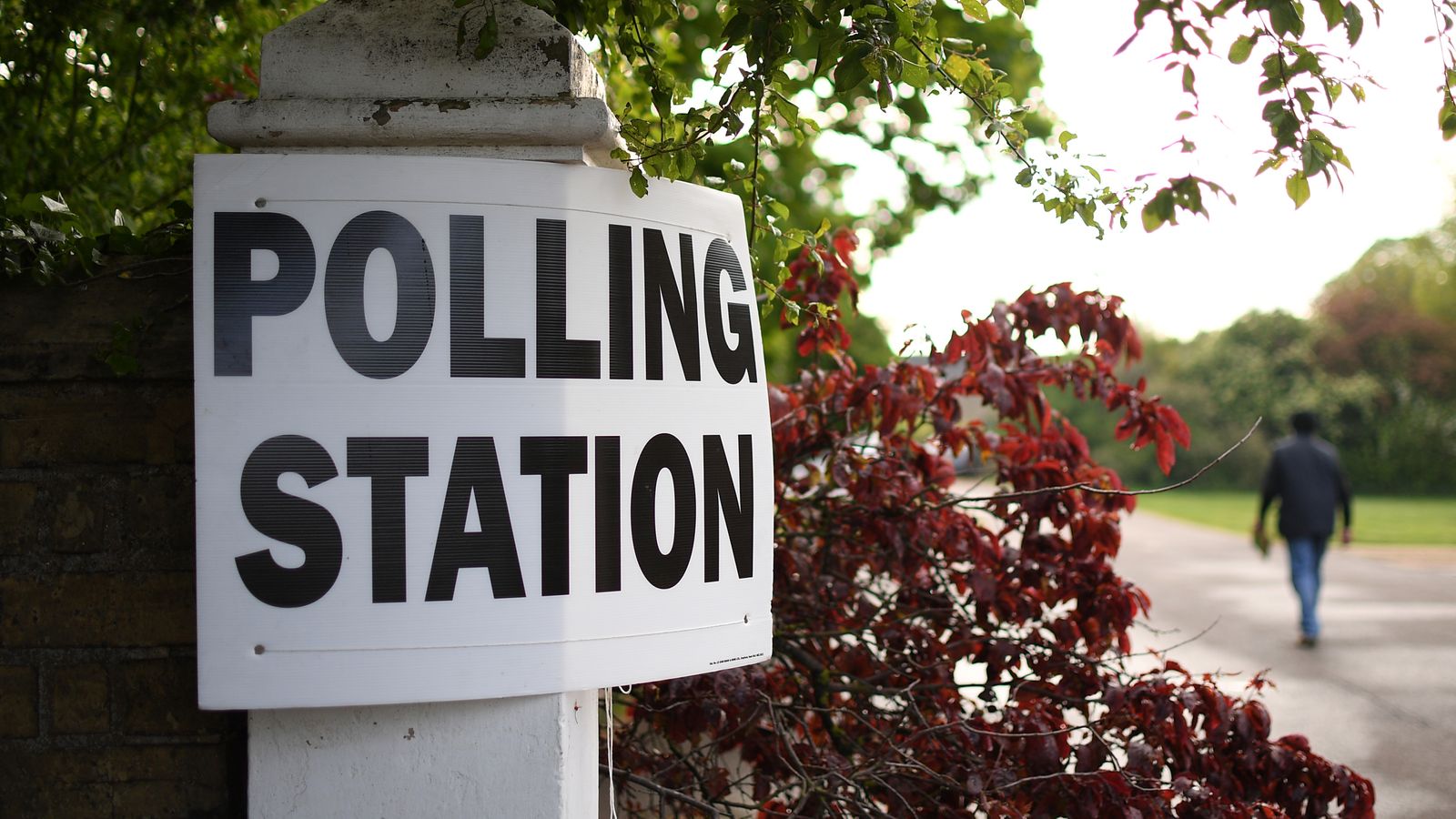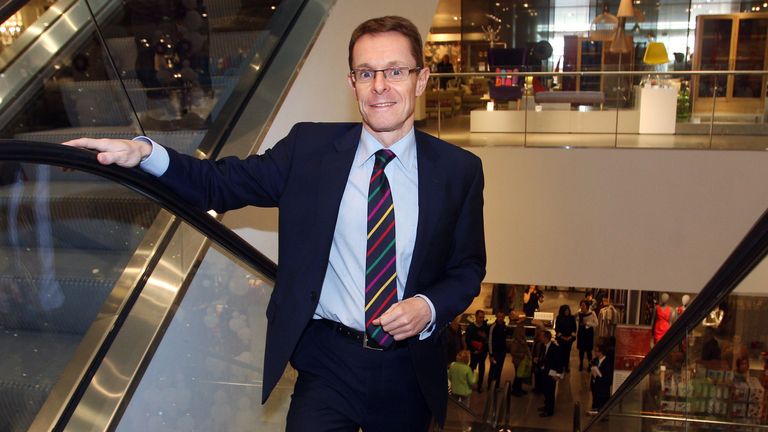There are 650 MPs in parliament. Each one has a personal mandate to represent their constituency and is under a heavy whip from their party leaders.
But only a few tens of thousands of people will actually vote for each MP by name.
In the upcoming elections across Britain on 6 May, voters will directly elect 13 mayors in cities and metropolitan regions across England.
Each successful mayor will garner hundreds of thousands of votes. In big city areas around Birmingham, Manchester and London their tallies will top a million.
These mayoral roles are new innovations brought in by Tony Blair and David Cameron.
But each one is already becoming an alternative centre of power and influence to rival that of central government in Westminster.
The attraction of the role
Andy Street was the managing director of John Lewis before being elected Conservative mayor of the West Midlands.
He told Sky News: “I don’t happen to think it’s right that people go straight from university to be an MP and climb that greasy pole.
“I’m much keener that people do [a] business job… [or] they might do a public service job, then move into a sort of role like this.”
So why was he attracted to giving up business to be the Conservative candidate in an area which already has number of councils in charge of local government?
“Accountability,” he explained. “People can see who is responsible for the outcomes and then they will say to me, ‘Andy you said this would be achieved. Well has it been?'”
Along with Labour’s Andy Burnham in Greater Manchester and Marvin Rees in Bristol, Mr Street was one of three city mayors I spoke to. They are all now hoping to be re-elected for a second term.
They all relish the undiluted personal responsibility of their job.
“Being directly elected does give you more traction, it gives you more profile so you can actually begin to influence national government [and] influence city partners,” Mr Rees said.
“And by the way, I will say part of your ability to influence depends on your ability to listen and be influenced.”
Former Labour cabinet minister Andy Burnham regards himself as a changed man since he left parliament to be mayor.
He said: “Westminster at its worst makes a fraud out of the people who go there because they can’t truly be themselves and kind of speak in a way that is authentically them.
“I kind of feel, if I look back at my Westminster career that I ended up a bit that way.
“And I think this role allows you to, to kind of be more rooted, be more compassionate about your place, and speak more directly to the public.”
Challenging central government
Perhaps because of his past experience, Mr Burnham has had the most confrontational relationship with Boris Johnson’s government.
He protested loudly that Manchester was being treated unfairly during the pandemic – both in the severity of the lockdown and the low level of support for those affected.
Mr Johnson used his 2019 election victory speech to pledge he would use his “extraordinary mandate” to “unite and level up” the nation.
Like the other mayors, Mr Burnham regularly challenges the prime minister on this.
He said: “This system really works when we put place first rather than party. And if we all do that, then I think we can start to make levelling up a reality.
“So I would say to the prime minister, go back to where you started when you came into office when you talked about the importance of mayors and the importance of devolution.
“English cities outside of London do not punch their weight on the world stage, they could be so much more than they currently are.”
Cult of personality
The personalities of the mayors have become of national interest. In Mr Burham’s case there’s the question of his further political ambitions, not quite denied by him, and the uncomfortable fact that he comes from the rival city of Liverpool and is an Everton supporter to boot.
Marvin Rees was the first black mayor elected in Europe.
Last summer Black Lives Matter protests flared in Bristol with the tearing down of the statue of the slaver and city benefactor Edward Colston.
Mr Rees successfully took the heat out of the situation but regards his other work, notably on the environment, as more significant.
He is impatient with being pigeon-holed by the media.
“I would also say I’m mixed race,” he explained.
“So there is such a thing called white privilege but my white mum did not lead a life of privilege, neither did my white grandfather, who is the son of a welsh miner from Merthyr Tydfil.
“Transcending these boundaries has been really important as I’ve tried to navigate the city’s future.”
This week this former BBC broadcaster’s ability to stay cool has once again been tested after a “Kill the Bill” protest in Bristol morphed into violence against police.
Meanwhile, Andy Street’s main mission has been to regenerate city centres by encouraging business.
He is openly angry about the permanent closure of a new Birmingham flagship store by his old company John Lewis.
He said: “It’s incredibly sad for my city, the 500 people who work there. And if I’d still been boss, it would not have happened for one very simple reason, not just because I’m a Brummy, but because John Lewis needs a presence in the really big cities.”
Devolution power struggle
In an off-mike moment the prime minister was caught describing devolution as “a disaster”, even though he was once a mayor himself.
The three mayors I spoke to all regard the sharing of power as an uncompleted work in progress.
Boris Johnson, they believe cannot have it both ways.
“You cannot level up England top down from Whitehall. You can only do it if you work, if you level up from the bottom up with local government and regional government working in partnership with central government,” Mr Burnham said.
Whoever wins this May, mayors will be back for another term. The tug of war between the central government and the regions is set to get fiercer still.



